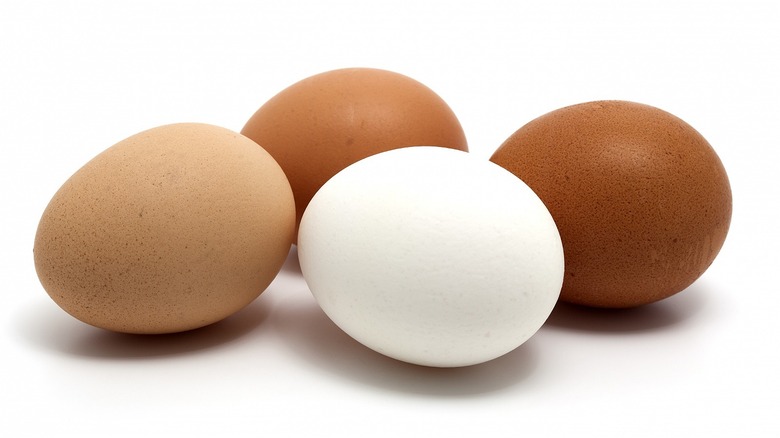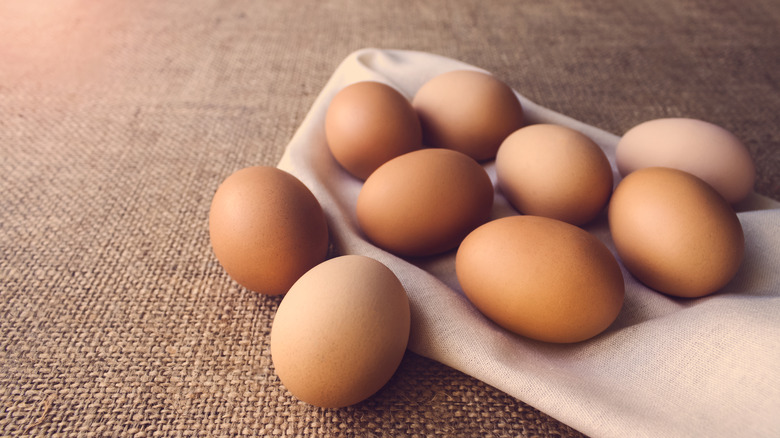Why You Should Be Storing Eggs Sideways
We may receive a commission on purchases made from links.
We've heard all sorts of things about how we should and shouldn't handle eggs. Some say refrigeration is the best way to ensure freshness for a long time, and others are room temperature stans. The placement is often a subject of debate, but rarely do we think about how eggs should be stored.
When you think about it, it may seem like there's nothing much to the way we store eggs. Instinctively, we store eggs in a vertical position, but as it turns out, storing them on the side may have some merits. While it does go against everything we have learned about how eggs should be stored, Harold McGee, the author of "On Food and Cooking," believes that storing eggs on their sides helps center their yolk. "Eggs that are stored on their sides give somewhat better-centered yolks when hard-cooked, perhaps because both yolk cords fight equally against gravity," McGee writes in the book.
The theory has been put to test
Now, before you start dreaming of all the perfect deviled eggs you can make with this technique, let's talk about its efficacy. Storing eggs sideways hasn't always proved helpful. When TikTok user @gourmetgab hard-boiled her eggs after storing them on their sides, the yolks turned out to be lopsided and not centered.
@gourmetgab 12 DAYS OF EGGS 🍳 Day 3: Does the hack of storing eggs *sideways* before hard boiling actually help center the yolks?!? #12daysofeggs #eggtok #egghacks ♬ original sound – gourmetgab
Others have found success. According to America's Test Kitchen, the staff stored eggs on their sides in the fridge 24 hours before boiling them to make deviled eggs and found the method to be "foolproof." "CookWise" author and biochemist Shirley O. Corriher can vouch for this method as well. Safe to say, the technique can be a hit or miss but it seems to work.
Another thing that determines whether or not your hard-boiled eggs will turn out perfect is their freshness level. Contrary to what you might think, fresh eggs are a big no-no. It is because the membrane between albumen and the shell of fresh eggs is strong, and when you hard-boil those, the shell tends to firmly stick to the white. Peeling such eggs is a pain because the whites chip off along with the shell. McGee also recommends simmering eggs at a temperature of around 180-190 degrees Fahrenheit rather than boiling them.

